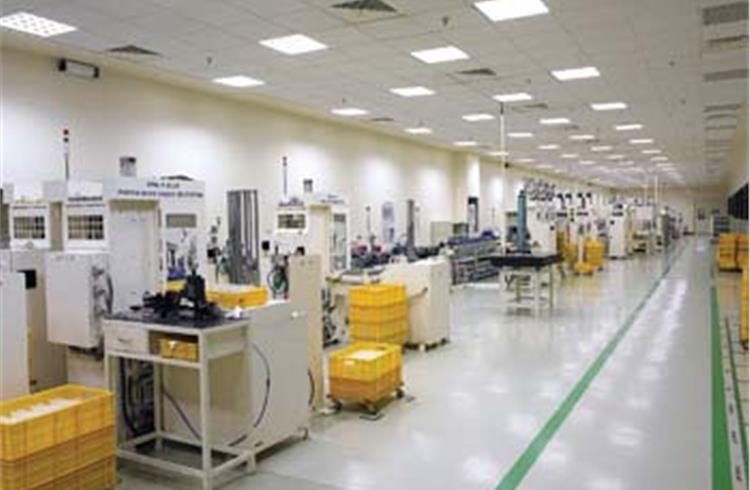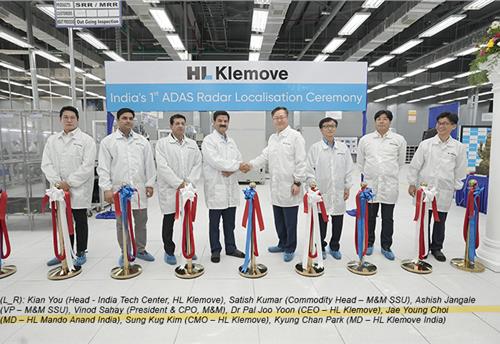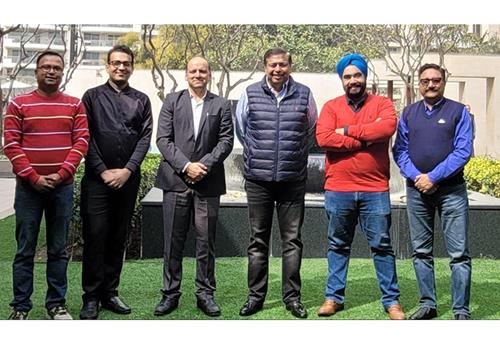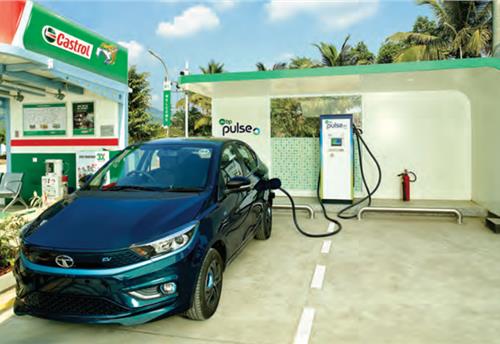Visteon pushes vehicle electronics
Global auto components manufacturer Visteon is planning to expand its presence in the Indian automotive market by broadening its product range during this year.
Visteon is currently in the midst of commissioning its new dedicated electronics building at its Chennai facility. This new building will house audio assembly lines, a continuous flow Surface Mount Technology (SMT) assembly line, as well as the existing driver information assembly lines. “By bringing more of our extensive electronics product portfolio to India, we can better support our customers’ needs on all vehicle segments, from ultra small car to family cars and more luxurious saloons,” says Viswanathan.
Visteon says the new electronics plant will bring its manufacturing expertise in this area to the Indian market. The new electronics building will be fully Electro-Static Discharge (ESD) compliant, including having an SMT clean room where humidity and temperature are controlled. The company is also enhancing the in-house print wiring boards quality control system by installing multiple automated inspection stations, such as 3D paste inspection, automatic optical inspection, in-line-in-circuit-testing and a fully computer integrated manufacturing system. Towards the end of last year, Visteon has also launched the manufacture of instrument panels using two shot moulding technology.
The company currently has two R&D centres in India, namely the Visteon Technical Centre and TACO Visteon Engineering Centre, which is a joint venture with Tata Auto Comp Systems. “More than 600 engineers work at these two centres, giving Visteon the ability to provide embedded software and engineering support to our operations in India, Asia-Pacific, the US, and Europe. Our long-term strategy in India has been and continues to focus on fostering local talent. The strategy is to keep building capability in India to better support our customers and our worldwide operations,” clarifies Viswanathan.
The company says that one of the keys to its growth is to continually look at evolutionary products that will allow Visteon to be first to market. One such product is the integrated vehicle cockpit electronics unit integrating audio, driver information and climate control electronics, called ACDI. “The ACDI platform is a first-to-market product that significantly benefits automakers by offering expanded styling flexibility, enhanced spaciousness, highly integrated unit eliminating networking and wiring required for interfacing three independent control units, and reduced overall weight. All this at a lesser cost than traditional systems,” explains Viswanathan.
Global collaboration for ACDI
The development of the ACDI system was a global collaboration led by Visteon Technical Centre (VTC) in Chennai. Visteon teams in North America and Asia-Pacific worked on developing the architectural integration concept and reviewing the engineering, while VTC in India developed the software and worked on the electrical and mechanical engineering.
“We are currently discussing this new product with key customers in India and in other markets. Considering the advantages of this product, we are confident that it will be well received. Given our wide manufacturing footprint, the ACDI could be manufactured at most of our locations worldwide which would best support the customers’ needs,” says Viswanathan.
“The ACDI demo concept is a perfect example of our R&D centre’s ability to develop products which can be applied worldwide. India engineering centres have been engaged in the development of other global platforms like Tiger Audio and the Newton Driver Information System,” adds Viswanathan.
In India, Visteon key customers are Hyundai, Ford, Maruti Suzuki, Mahindra & Mahindra, Renault, Nissan, Tata and Volkswagen. “We already have well established relationships with Volkswagen and Renault globally and in India and we are confident that this relationship will continue to flourish,” states Viswanathan.
The company regularly conducts technology shows for its customers where it showcases key products and technologies that it thinks could work for them in the Indian market. It also designs and manufactures products with different levels of technology, features and costs depending on the vehicle model, the market and customer requirements, allowing for maximum flexibility.
Visteon has two joint ventures with Tata Auto Comp Systems in India, namely, TACO Visteon Engineering Services which does CAD/ CAE work and TACO Visteon Automotive which manufactures intake manifolds and lighting systems. Both these joint ventures are based in Pune and “have been a good addition to Visteon’s global operations,” according to Viswanathan. Discussing the current state of the Indian automotive market, Viswanathan says: “The Indian market has also been affected by the global recession in the last quarter of 2008, albeit to a lesser extent than the global market. Although we have seen positive growth in the first few months of this year, we still have to wait for a full recovery. The government’s stimulus package has had a beneficial impact on sales but the truck and bus segments are still lagging behind.”
Striking a positive note, he adds, “We are optimistic about the long-term growth of the Indian automotive industry and are positioning ourselves from a manufacturing and engineering perspective to meet the demands of the customers in this growing market and will continue to introduce new products from our global portfolio as well as develop products specifically for emerging markets like India.”
Visteon feels that to further support the automotive industry, the government needs to focus on infrastructure development as “this is crucial and would benefit from speedy implementation.” The credit flow and cost of credit also needed to be eased further according to the company. “The Indian automotive industry is increasingly integrating with the global auto industry and this can be translated into opportunities for the country as long as timely initiatives are put into action,” adds Viswanathan.
The low-cost car challenge
Visteon is also gearing up to meet the challenges and opportunities offered by the emergence of low-cost cars like the Tata Nano. “We can support automakers in any vehicle segment, from ultra-low-cost cars to luxury segments. Over the years, we have developed many innovative products and systems that are cost-effective to better meet the requirements of the low-cost car segment, and all these products are based on extensive consumer market research,” explains Viswanathan.
One example of such a product is an audio platform that is scalable enough to add features as requested by the automaker. This can start from a basic audio system for a low-cost car and then add on other features like a CD player and Bluetooth connection as required. “This approach enables us to create one engineering platform which can be used across customers and is therefore cost effective, while allowing for the human-machine interface and the design of the audio systems to be customised for every customer. We have also developed driver information platforms based on this concept and the ACDI system is yet another example of a product that suits the low-cost car segment.” says Viswanathan.
Visteon says products for low-cost and ultra-low-cost cars like the Tata Nano and upcoming Renault-Bajaj model are a key focus area for the company. In fact, it has recently conducted research on these segments, to better understand consumer needs and preferences, thereby helping its customers build vehicles that meet and exceed buyer expectations.
RELATED ARTICLES
Branded content: HL Klemove inaugurates first Local ADAS Radar Manufacturing Unit in India, marks a significant achievement in “Make in India” initiative
The inauguration ceremony was held in the presence of Vinod Sahay, President and CPO of Mahindra & Mahindra Ltd. and Dr....
BluWheelz to 'Green Up' logistics sector
With their EVs-as-a-service solution, the startup is playing it smart with costs and looking to electrify the entire seg...
BRANDED CONTENT: Spearheading the EV revolution in India
Jio-bp is a joint venture between Reliance Industries and BP PLC where both entities have married international expertis...





 By Autocar Pro News Desk
By Autocar Pro News Desk
 08 Jun 2009
08 Jun 2009
 10634 Views
10634 Views









